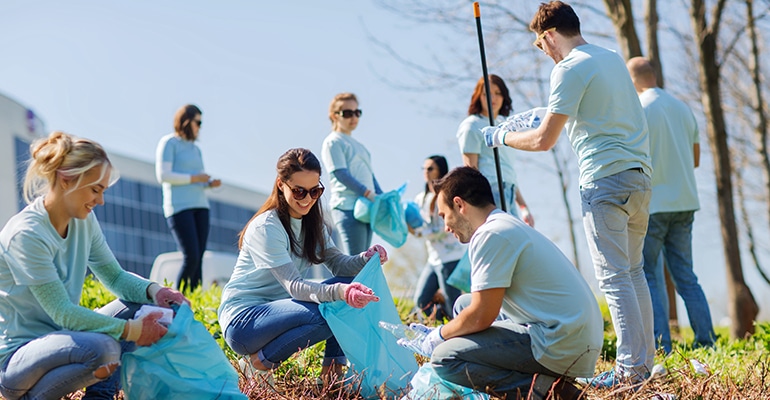Time Magazine named Greta Thunberg as Person of the Year for 2019. Her impassioned speech about climate change and her frank attitude had shook many who watched her speech and had even instigated worldwide climate change movement demanding a more radical and immediate change in the usage of plastic bag and non-renewables, notwithstanding the city of Melbourne. In fact, on 20th September 2019, Melbournians rallied together and joined their hands in Australia’s biggest climate strike, which resulted in a tighter ban on non-renewable plastic production – and this event took place only 3 days away from the UN’s Emergency Climate Summit on 23rd September 2019. It also resulted in a state-wide ban of non-renewable plastic in restaurants and take-away joints in Victoria.

While the introduction may not seem to encapsulate the meaning of volunteering, it actually presents an important link to the origin of the spirit of volunteerism. The usage of the verb was first recorded in 1755 and was derived from the word “volunteer” which means “one who offers oneself for military service”, from the Middle French word voluntaire. Similar to the aforementioned example, volunteer does not necessitate good deeds which are only directed to people. So long as an effort is done to benefit someone or something, with no expected reward in tow, the spirit itself qualifies as volunteerism. A close synonym for the term itself is altruism, another terminology coined in the mid-19th century from the latin word alteri huic which means “to this other”.

Though coined in the 18th century, the first volunteerism corporate body would not be found until the 19th century when the first YMCA was founded in 1851. Since then, the inception of a non-profit body focusing on helping the less fortunate has inspired many other institutions to do the same. Many of the well-to-do corporations also have their own non-profit institutions which acts as an extension and a corporate social responsibility manifestation of their corporate goal. Take the example of Bill & Melinda Gates Foundation, a non-profit founded by both Bill and Melinda Gates which acts as an extension of the Gates’ corporate social responsibility goal.
Today, volunteering in itself is encouraged for both youths and adults. For youths, volunteering instills a sense of community belonging and community support, which will encourage the growth of kindness and humility in the character of the youths. For adults, volunteering allows one to give back to the community and help the less fortunate while making friends and getting to know more about the social community. For some people, volunteering also serves as a reminder that all of us are stronger together – and that what we do matter in making a difference to others. In fact, with the prominence of institutions offering volunteering opportunities and the emergence of various independent institutes focusing on social projects and community service, there are various opportunities to offer your time and skill to benefit other people according to what you wish to focus on.

The ways in which people volunteer himself/herself may have changed since it first started in the days of yore. We now see various charity events such as amazing races, marathons and friendly competitions all geared toward raising awareness and raising funds for charity. However, the spirit of volunteering still remains – it stems from the acknowledgement that we are all stronger together and that we all play a part on people’s lives.
Text: Edward Tanoto
Photo: Various sources




















